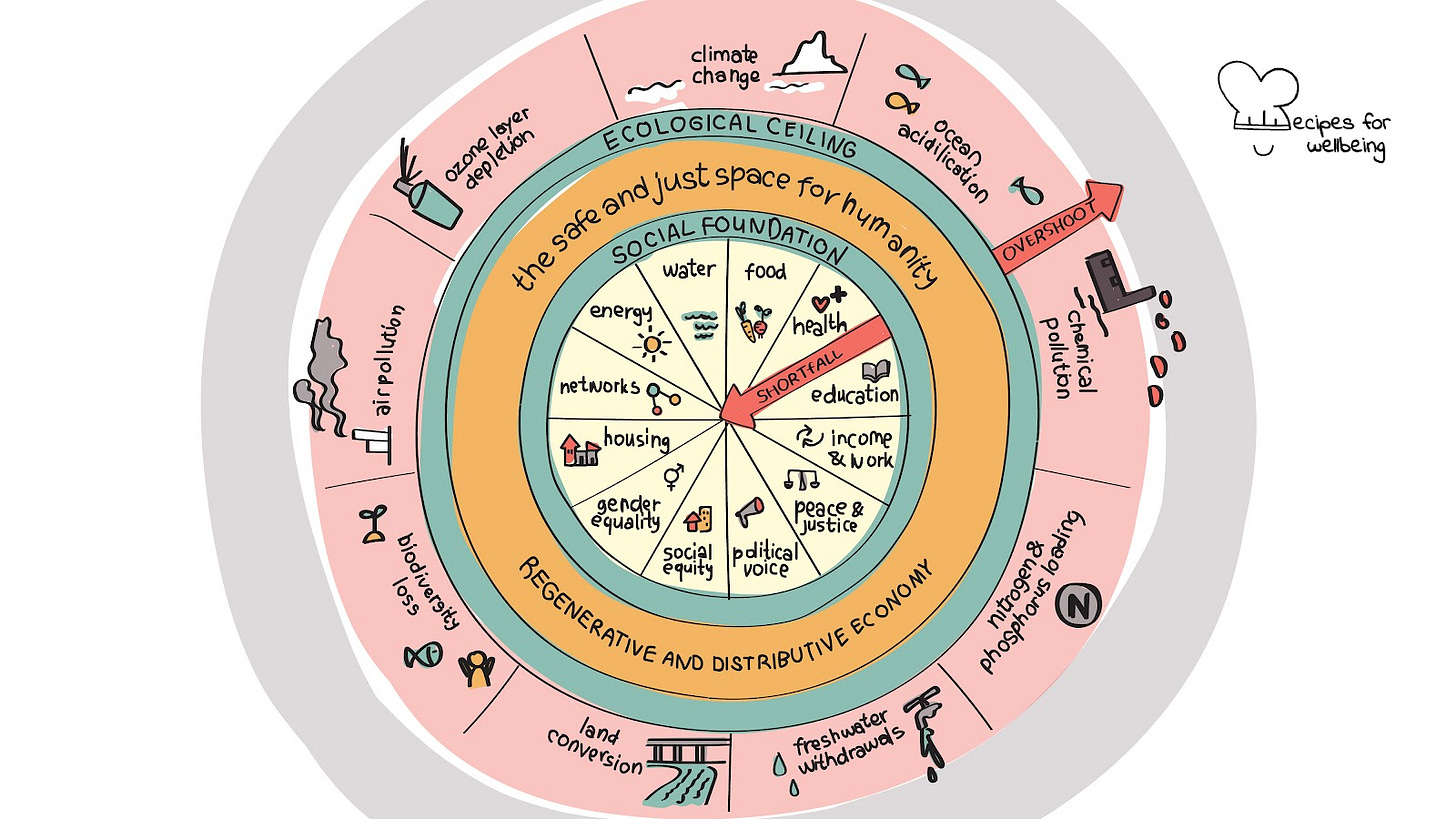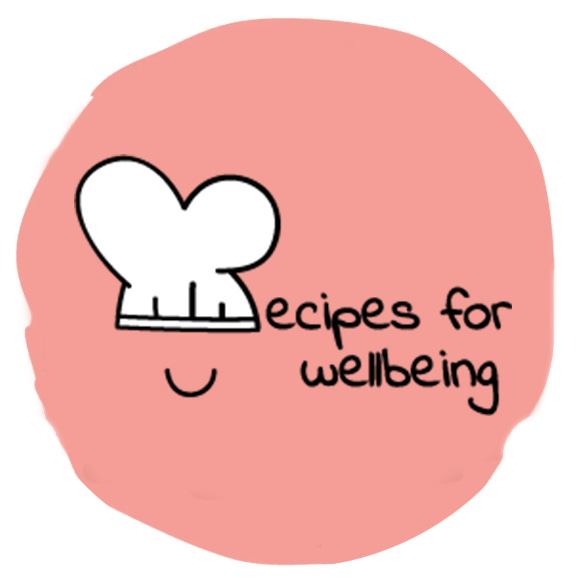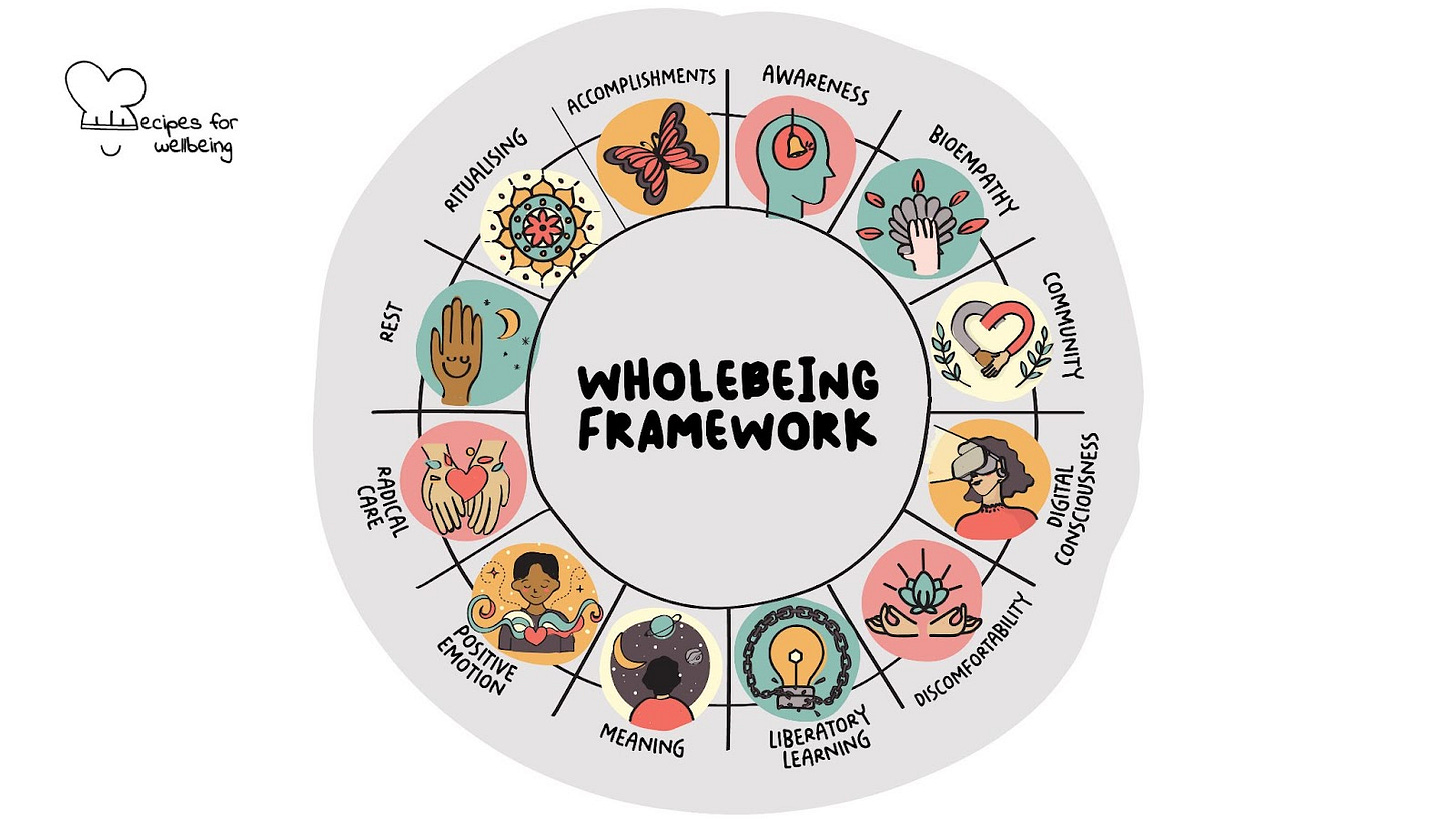Wholebeing: Essential skills for a post-growth society
Article in collaboration with Recipes for Wellbeing
In the face of multiple planetary crises, we're beginning to understand that our dominant economic system is fundamentally incompatible with life on a finite planet. Yet while many recognize the need for systemic change, we often overlook a crucial question: what skills do we need to thrive in a human world that operates within planetary boundaries?
Our current economic system doesn't just shape our external reality—it colonizes our internal landscape, rewarding skills like competition, efficiency, and extraction while marginalizing the very competencies we most need for collective survival. What if the skills we've been led to believe are essential for success are actually preventing us from creating truly sustainable and fulfilling lives?
Enter the concept of Wholebeing, which offers a different approach to what it means to flourish. Developed as a practical framework by Recipes for Wellbeing, wholebeing transcends traditional notions of wellbeing by "integrating the full spectrum of human experiences—both 'good' and 'bad'" while recognizing that our individual flourishing is inseparable from community and planetary health.
The Great Skills Mismatch
Our education systems and workplaces prioritize "master skills"—capabilities that enable domination of nature and control of resources. Meanwhile, we systematically undervalue the "caring competencies" that foster regeneration and mutual aid.
This skill mismatch is no accident. Capitalism's growth imperative requires that we remain disconnected from the consequences of our actions, that we prioritize efficiency over reciprocity, and extraction over regeneration.
As environmental psychologist Joanna Macy observes, "The crisis that threatens our planet derives from a dysfunctional notion of the self." Our very understanding of what it means to be successful continues to be warped by a growth-over-ecology ideology.
Wholebeing Domains: A Framework for Post-Growth Living
The Wholebeing Framework maps the skills we need to thrive in a post-growth world. Organized into 12 interconnected domains, it offers a radical departure from the competencies valued by growth-obsessed economies.
1. Accomplishments: Redefining Success Beyond Growth: The Accomplishments domain reframes achievement beyond capitalist metrics. Skills like Clarity and Accountability help set goals aligned with sufficiency rather than excess, challenging the endless pursuit of more.
2. Awareness: Presence as Resistance: In the Awareness domain, skills like Presence become acts of resistance in a system designed to keep us distracted and consuming. We cannot transform systems we aren't fully awake to.
3. Bioempathy: Reconnecting with Ecological Limits: The Bioempathy domain helps us "return to our innate connection with Nature." Skills like Nature Kinship develop an ethos of enough—recognizing ecological limits as boundaries that define a good life.
4. Community: From Individual to Collective Wellbeing: The Community domain shifts from individualistic wellbeing to collective care. Skills like Non-Extracting and Multiperspectivity help create relational wealth—value generated through connection rather than extraction.
5. Digital Consciousness: Reclaiming Agency from Growth Algorithms: The Digital Consciousness domain cultivates "conscious engagement with digital spaces." Skills like Digital Agency help resist surveillance capitalism—the extraction of our attention and data—creating space for post-growth imagination.
6. Discomfortability: Facing the Growth Addiction: The Discomfortability domain helps us navigate the discomfort of growth withdrawal. Skills like Challenging and Resilience develop active hope amid collapse.
7. Liberatory Learning: Unschooling from Growth Ideology: The Liberatory Learning domain helps "free yourself from oppressive systems." Skills like Liberation and Autonomy help unlearn the growth mindset embedded in our education and culture.
8. Meaning: Purpose Beyond Productivity: The Meaning domain connects us to purpose beyond productivity. Skills like Significance help us recognize that human needs like meaning don't require endless consumption to fulfill.
9. Positive Emotion: Abundance Within Limits: The Positive Emotion domain helps us "see possibilities and take in the goodness." Skills like Abundance cultivate frugal abundance—finding joy in enough rather than excess.
10. Radical Care: Regenerative Relationships: The Radical Care domain counters capitalism's neglect of care work. Skills like Love and Holding Space center precisely what growth economics systematically devalues.
11. Rest: Resisting Productivity for Liberation: The Rest domain values "rest as liberation." Skills like Pausing and Non-Performing directly challenge capitalism's demand for constant productivity. Collectively withdrawing from the treadmill of production is perhaps our most radical act.
12. Ritualising: Creating Sacred Sufficiency: The Ritualising domain helps "reclaim sacredness" through skills like Storytelling and Intention Setting. This helps us find meaning through relationship rather than accumulation.
From Personal Practice to System Change
The Wholebeing Framework bridges inner work with collective transformation. Unlike individualistic wellness that leaves growth systems intact, wholebeing skills operate at personal, relational, and community levels simultaneously. These skills equip us to face crises together rather than alone.
Unlike capitalist skills that require extensive credentialing, wholebeing skills are democratic—available to everyone through simple, daily practices that gradually reorient our relationships with life.
As ecological and social challenges intensify, these skills become essential ingredients for collective flourishing. They help us reconnect with each other and the living Earth, transforming our relationships from extraction to reciprocity.
By cultivating wholebeing in our communities, we're actively cooking up a post-growth world—one skill, one practice, one relationship at a time.






Wonderful! I’m happy to read that the small project I just started is working in ELEVEN (!) of these twelve domains. I appreciate the effort to articulate and create a system of sorts. Very helpful.
You may want to check out my project as an example of one direction that’s being explored: https://www.sittinglab.com
Love it. This reminds me of the Blackfoot collective values vs. what Maslow made out of it (hint: it's inverted, communal and not even a triangle but a circle like you describe)